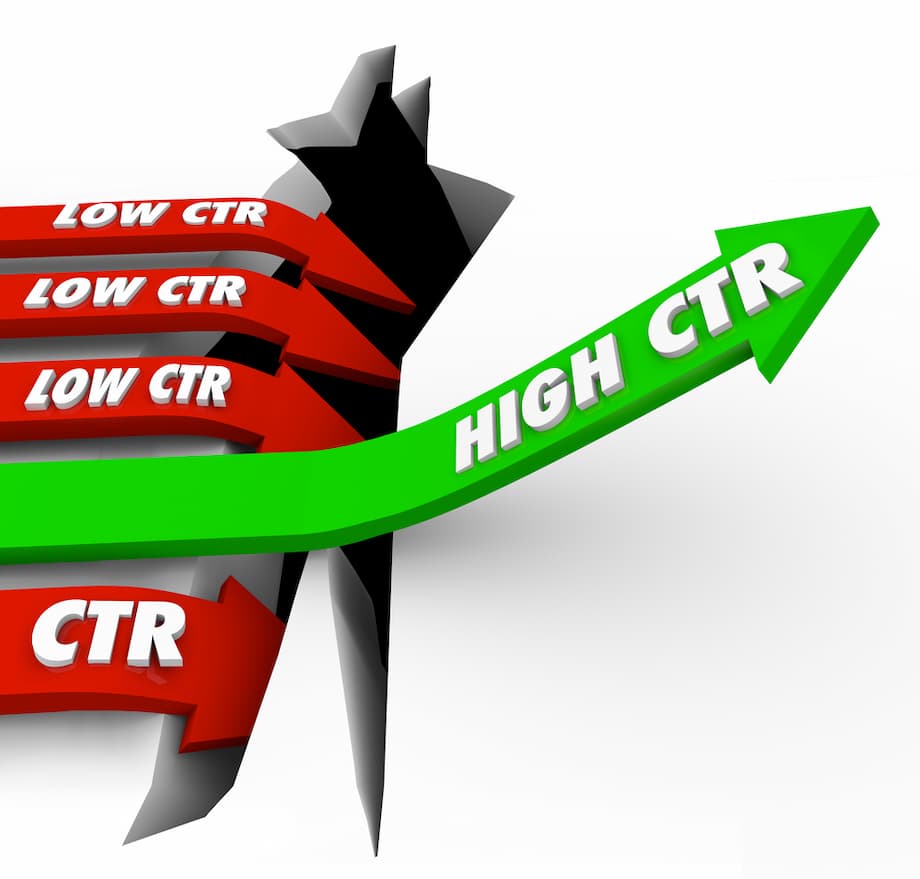Keyword cannibalization, a term that may sound like a buzzword in the world of SEO, is a phenomenon that can make or break your website’s search engine rankings.
The concept of keyword cannibalization is like a ticking time bomb. It stealthily undermines your digital presence, dilutes your rankings, and stifles your potential in organic search.
Whether you’re a seasoned SEO professional or just starting to dip your toes into online marketing, understanding and addressing keyword cannibalization is crucial for improving your website’s search visibility.
In this article, we’ll delve deep into keyword cannibalization. What it is, how to identify it, why it’s detrimental, and, most importantly, how to fix it.
Cracking the code: what is keyword cannibalization?
Keyword cannibalization occurs when multiple pages on your website target the same or similar keywords.
This confuses search engines. It leads them to prioritize one page over others or even penalize your website’s overall ranking.
To understand it better, imagine your website as a library. Each page on your site is a book. Keywords are the topics or subjects that these books are about.

The Battle of Multiple Pages
When we talk about “multiple pages” in the context of keyword cannibalization, we refer to a situation where a website has numerous distinct web pages, each intentionally or unintentionally targeting the same keyword or a closely related keyword phrase.
These pages can encompass various types of content found on your website, ranging from blog posts and product pages to landing pages and informative articles.
For example, consider a website dedicated to home gardening tips.
Within this site, separate pages might be optimized to rank for the keyword “organic tomato cultivation.” These pages could include a blog post offering step-by-step instructions, a product page selling organic tomato seeds, and a comprehensive guide to organic gardening techniques.
All of these pages share the common goal of ranking high in search results for the keyword “organic tomato cultivation” but may present the same or similar content in different ways.
This scenario shows multiple pages competing for the same keyword. It’s a classic case of keyword cannibalization.
Keyword Twins: Navigating the Maze of Similar SEO Terms
Same or similar keywords is a situation where multiple pages on a website are optimized for the exact same keyword or incredibly closely related keywords.
This scenario can confuse search engines because the content on these pages appears almost interchangeable. It makes it challenging for search algorithms to discern which page to prioritize in search results.
For instance, consider a tech website that aims to rank well for smartphone-related queries.
On this website, you may see one page optimized for the keyword “best smartphones for 2023” and another targeting “top-rated cell phones 2023.”
These keywords are remarkably similar, differing only slightly in wording.
Such proximity in keyword choice creates competition between these pages. Both strive to secure high rankings for the same user query—finding highly regarded smartphones in 2023.
Keyword Cannibalization: Friend or Foe in the SEO Arena?
It’s necessary to distinguish between strategies that boost your website’s search engine performance or hinder its progress.
Is keyword cannibalization a friend, assisting your SEO efforts, or a formidable foe, undermining your rankings?
Keyword cannibalization is unequivocally BAD for your website’s SEO. Here’s why
Leaving Search Engines Guessing
Keyword cannibalization confuses search engines by presenting multiple pages from the same website as potential search results for a particular keyword or query.
When multiple pages compete for the same keyword, search engines struggle to determine which page offers users the most relevant and valuable information. This confusion can lead to suboptimal ranking decisions.
Cannibalization also dilutes the authority and SEO value that could be concentrated on a single, highly optimized page.
Instead of consolidating the ranking power and backlinks into one authoritative source, it disperses these resources among several competing pages. As a result, no single page may reach its full SEO potential, leading to lower rankings across the board.
Search engines prefer to present users with a clear and well-organized hierarchy of content. Keyword cannibalization disrupts this hierarchy, making it challenging for search engines to deliver the best possible results.
Sabotaging Click-Through Rates (CTR)
When your website exhibits multiple pages targeting the same or closely related keywords, it creates a perplexing situation for users conducting searches.
Imagine this scenario: a user types in a query, and the search engine results page (SERP) displays several links from the same website, all seemingly relevant to their query.
For instance, if you run an online electronics store, and two product pages compete for the keyword “latest laptop deals,” it’s akin to offering a user multiple doors to the same room. They may pause, uncertain about which link to click, leading to hesitation and possibly deciding not to click on any link at all.
In this manner, cannibalization drops the click-through rate as users become confused by the number of options. Ultimately, this negatively impacts the effectiveness of your SEO efforts.
Dilutes Brand Authority
Authority in the digital realm is a valuable currency that pages can accumulate over time. Think of it as trustworthiness and credibility in the eyes of search engines.
To illustrate this concept, consider a cooking website aiming to establish itself as an authority on Italian cuisine.
If this website has multiple pages targeting the keyword “classic spaghetti carbonara recipe,” each page accumulates backlinks and authority separately. However, if the focus was on a single, comprehensive carbonara recipe page, it could become a powerhouse of authority in Italian cooking.
Instead, keyword cannibalization shrinks this authority across multiple competing pages, diluting its impact.
This can hinder your website’s ability to effectively climb the search engine rankings and showcase itself as a trusted source in your niche.
Detecting the Intruder: Spotting Keyword Cannibalization in Action
Become the SEO detective and hero of your website’s success by mastering the art of spotting keyword cannibalization in action.
This elusive enemy lurks within your SEO strategy, silently sabotaging your efforts.
However, armed with skills to unveil its presence, you’ll be the champion safeguarding your website’s search engine rankings.
Conduct a Thorough Keyword Analysis
A good place to start is by conducting a comprehensive keyword analysis for your website.
Utilize keyword research tools like Google Keyword Planner or Ahrefs. These tools offer valuable insights into search volume, competition, and keyword variations.
- Explore related keywords to identify potential cannibalization conflicts and ensure clarity in targeting.
- Assess the keyword’s relevance to your content and its potential to attract the right audience.
- Repeat this process for each page on your website, creating a comprehensive list of keywords specific to each page’s content and intent.

Analyze SERP Rankings
To analyze SERP rankings effectively, conduct a manual search on Google or other search engines for your target keywords.
- Observe which pages from your website appear in the search results and their respective positions.
- Compare this with your intended ranking strategy to identify anomalies or cannibalization issues.
- Pay attention to whether multiple site pages rank for the same keyword, which could indicate cannibalization.
Additionally, assess the performance of your competitors on the SERP.
Take note of which pages rank highest for the keywords you’re targeting. Analyze the content and structure of those pages to understand why they’re outranking your own.
This competitive analysis can provide valuable insights into your SEO strategy and highlights any keyword cannibalization concerns you need to address.
Review Internal Links and Anchor Texts
Audit the internal links on your website, particularly those pointing to the pages in question.
Analyze the anchor texts used in these links to see if they contain the same or similar keywords. If you find multiple internal links with identical or closely related anchor texts pointing to different pages targeting the same keyword, it’s a sign of potential keyword cannibalization.
To address this, consider diversifying anchor texts to make them more descriptive and unique.
You also need to check the context in which these internal links appear. Are they naturally integrated within the content, or do they seem forced?
Assess if the links genuinely enhance the user experience and provide valuable information.
If they appear excessive or irrelevant, revising your internal linking strategy is an opportunity to align your SEO goals and avoid keyword cannibalization pitfalls.
Guarding Your SEO Fort: Tactics to Prevent Keyword Cannibalization
Now that we understand the perils of keyword cannibalization, let’s explore strategies to avoid it.
Develop a Clear Content Strategy
A well-defined content strategy is the foundation of effective SEO. Before creating new content, carefully plan your approach.
For example, if you run a fashion blog and intend to write about “casual summer outfits,” you should outline distinct topics, like “casual summer dresses,” “stylish shorts for summer,” and “summer footwear essentials.”
Each page should have a unique focus, targeting specific keywords related to the overarching topic of “casual summer outfits.”
Consolidate Content
Suppose your website has multiple blog posts discussing “healthy breakfast recipes.”
If you discover keyword cannibalization issues where these posts compete for the same keywords, consider merging them into one comprehensive “Ultimate Guide to Healthy Breakfast Recipes.”
This single, high-quality page can provide users with a more valuable and comprehensive resource while eliminating competition among your own pages.

Optimize Internal Linking
Internal links are the backbone of website navigation and SEO. To avoid keyword cannibalization, be deliberate in your internal linking strategy.
For instance, if you have a blog post about “home fitness tips” and another about “strength training exercises at home,” use varied and descriptive anchor texts.
Instead of repeatedly using “home fitness” as the anchor text, you could use “effective home workout routines” and “home strength training techniques” to differentiate the pages.
Utilize Canonical Tags
Canonical tags are tools for resolving keyword cannibalization issues. These tags specify the preferred URL for search engine indexing.
Let’s say you have two similar product pages on your e-commerce site for “wireless headphones” with slightly different URLs. To prevent search engine confusion and potential SEO problems due to duplicate content, a canonical tag is added to one of the pages, designating it as the preferred version.
For instance, if “Product Page 1” is selected as the preferred version, a canonical tag is placed on it with the URL of “Product Page 2.” Search engines then understand that “Product Page 1” should be prioritized for indexing and ranking, streamlining search results, and avoiding content duplication issues.
Essentially, implementing canonical tags on one of these pages tells search engines that the other is the preferred version. This prevents both pages from competing for the same keyword and helps search engines understand which one to prioritize in rankings.
Monitor Regularly
Keyword cannibalization is an issue that can resurface over time, especially on larger websites.
Regularly monitor your keyword rankings and internal links to stay ahead of it. Use SEO tools to identify potential conflicts and address them promptly.
SEMrush
- SEMrush offers a Keyword Cannibalization report that identifies pages on your website competing for the same keywords.
- It provides insights into which pages rank for specific keywords and how they perform.
- SEMrush also offers recommendations to address cannibalization issues, such as optimizing content or setting canonical tags.
Ahrefs
- Ahrefs includes a Site Audit tool to identify keyword cannibalization issues.
- It analyzes your website’s pages and lists keywords for which multiple pages compete.
- Ahrefs also offers suggestions for resolving the conflicts, like consolidating content or redirecting pages.
Google Search Console
- Google Search Console provides data on how Googlebot views your website and identifies keyword cannibalization problems.
- It can show which pages rank for specific keywords and provide insights into click-through rates and impressions.
- While it doesn’t offer direct solutions, it helps pinpoint areas where conflicts exist, allowing you to make informed decisions to address them.
Using these tools, you can efficiently identify cannibalization conflicts and take steps to optimize your website’s content and structure to improve SEO performance. Maintaining vigilance can prevent cannibalization from negatively impacting your SEO efforts and maintain a clear, organized website structure.
SEO Recovery Mode: How to Fix Keyword Cannibalization and Regain Lost Ground
Prioritize Pages

Imagine you have an e-commerce website selling athletic shoes.
You discover that two product pages compete for the keyword “running sneakers for beginners.”
To fix this, prioritize one of these pages based on content quality, backlinks, and user engagement. The page with the most comprehensive beginner’s guide to running shoes and a robust backlink profile should take precedence.
Update Content
Let’s say you’ve chosen one product page as the priority for “running sneakers for beginners.”
Now, it’s time to revamp and optimize the content on that page.
- Ensure it covers every aspect of beginner running shoes comprehensively.
- Add valuable insights, user reviews, and up-to-date information.
- Make sure it satisfies the user’s intent when they search for this keyword.
Adjust Internal Links
In your initial assessment, you noticed that other pages were internally linking to competing product pages.
Update these internal links to point exclusively to the prioritized page.
For example, if your blog posts contain links to the two competing product pages, ensure they now direct users to the priority page when discussing beginner running shoes.
Redirect or Delete Pages
To further consolidate authority and prevent confusion for search engines, consider redirecting or deleting redundant pages.
In the case of our running shoe example, you might redirect the less-prioritized product page to the main one. If the information is obsolete, delete it altogether.
This eliminates any ambiguity in search engine rankings and enhances the clarity of your site’s content structure.
Your Partner in Conquering Keyword Cannibalization and Achieving SEO Excellence
Staying ahead of the curve is crucial for SEO.
Keyword cannibalization is a common issue that can hamper your website’s search engine performance.
However, armed with the knowledge of what it is, how to identify it, why it’s detrimental, and how to fix it, you can take proactive steps to ensure your website ranks higher and attracts more organic traffic.
At My Website Spot, we specialize in SEO services that drive results.
If you’re struggling with keyword cannibalization or any other SEO challenges, don’t hesitate to reach out to us. Our team is here to help you navigate the complexities of SEO and improve your website’s visibility.
Contact us today, and let’s take your online presence to the next level.



